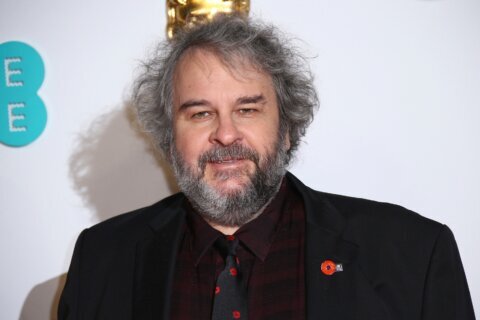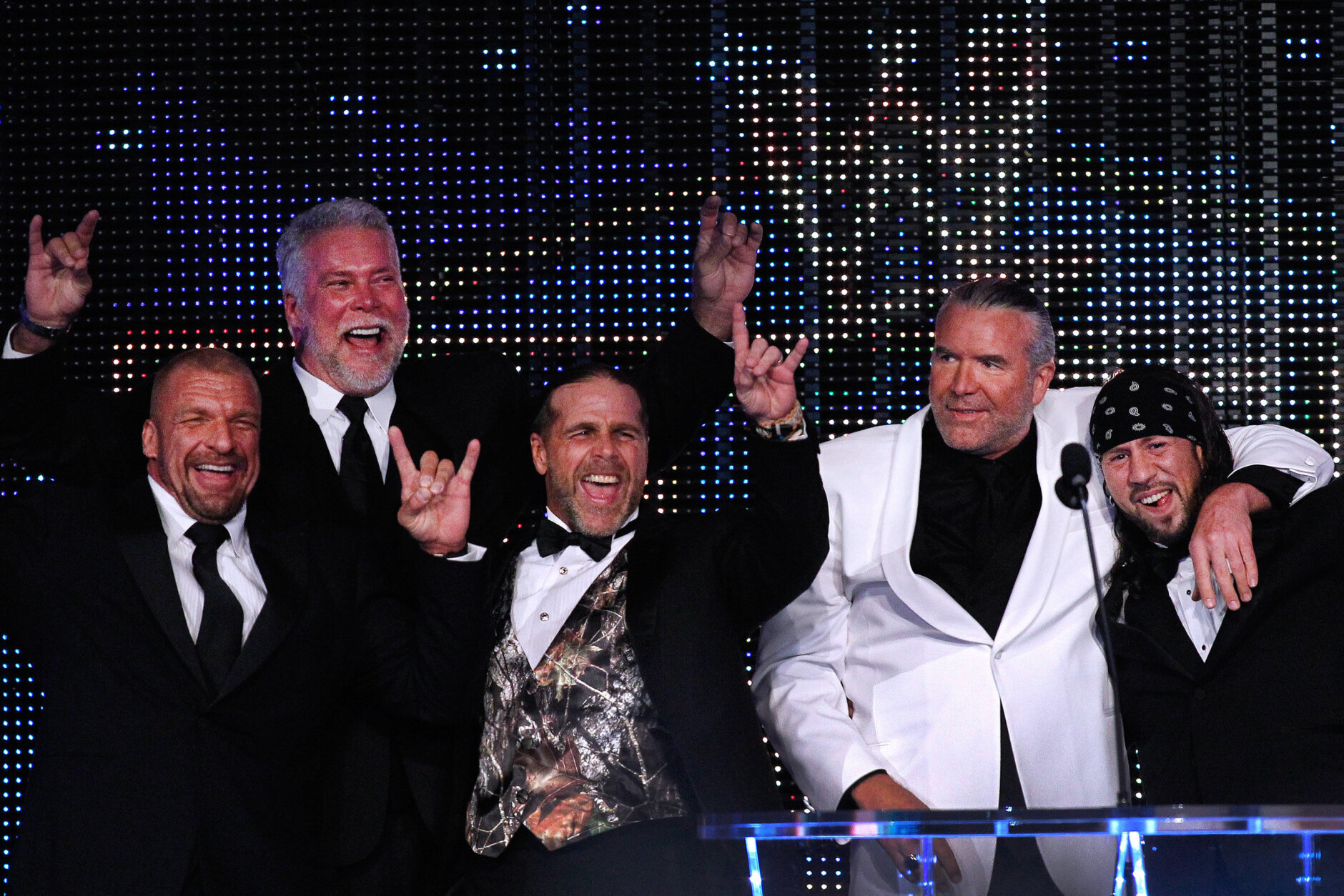
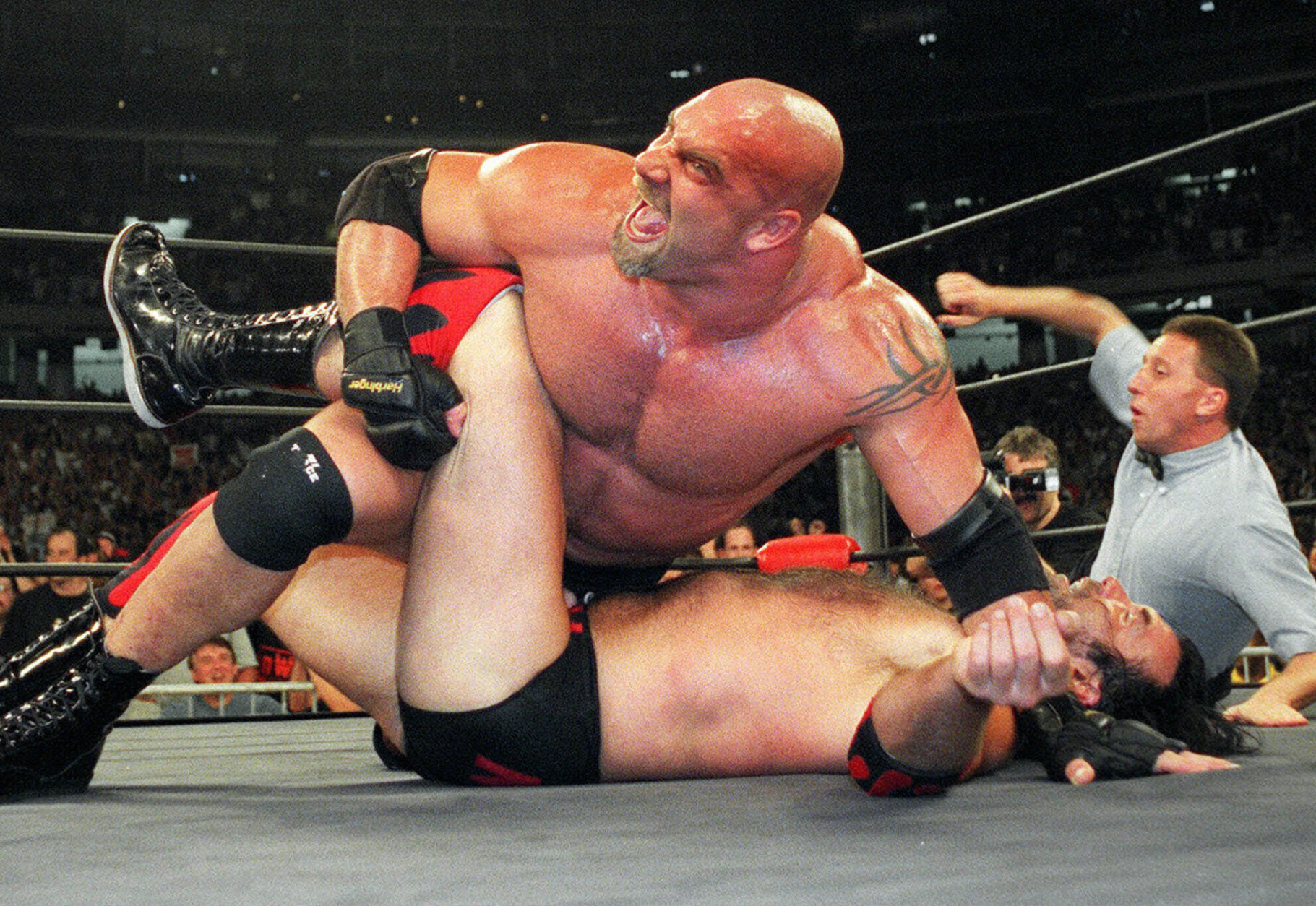
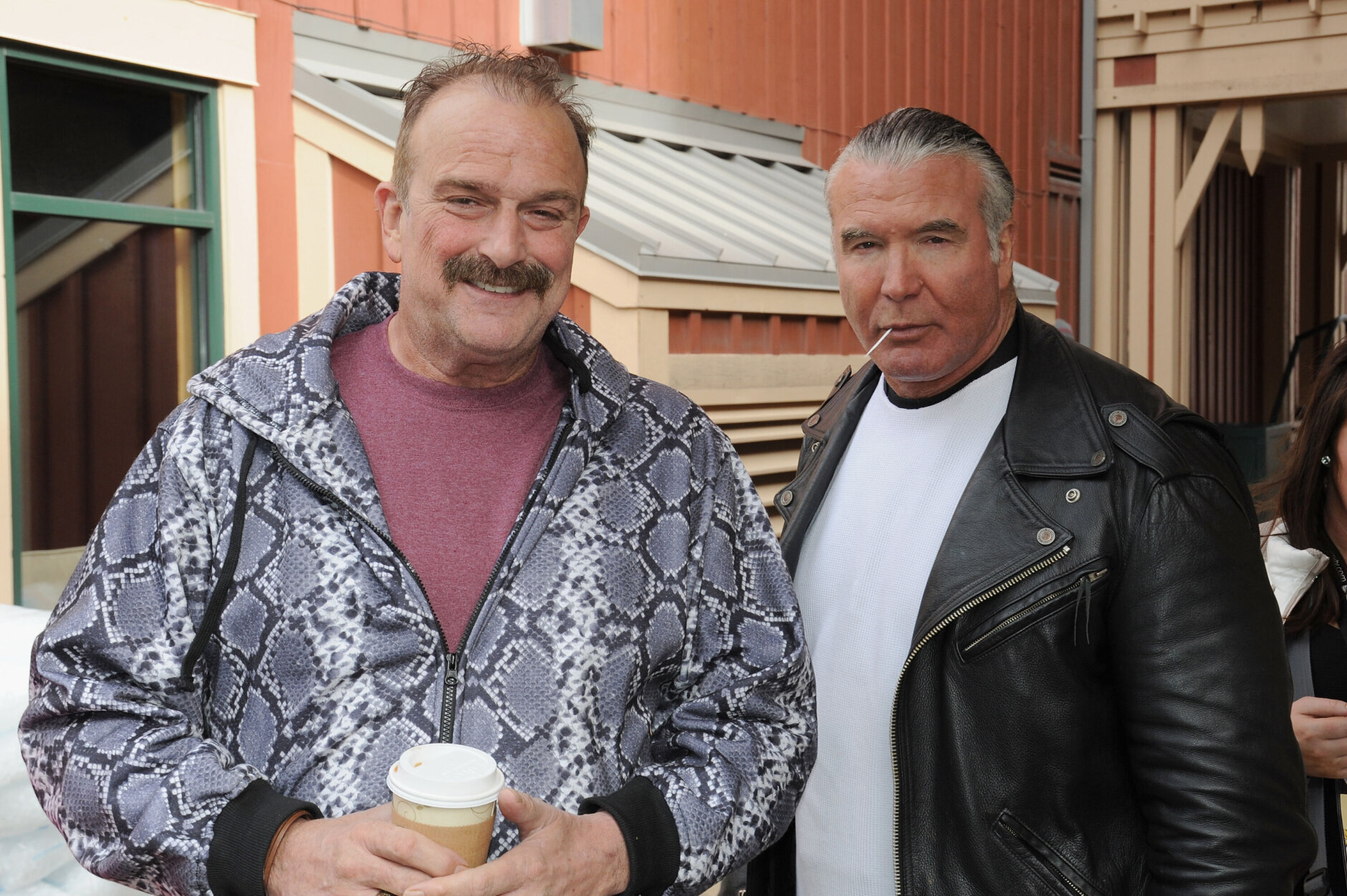
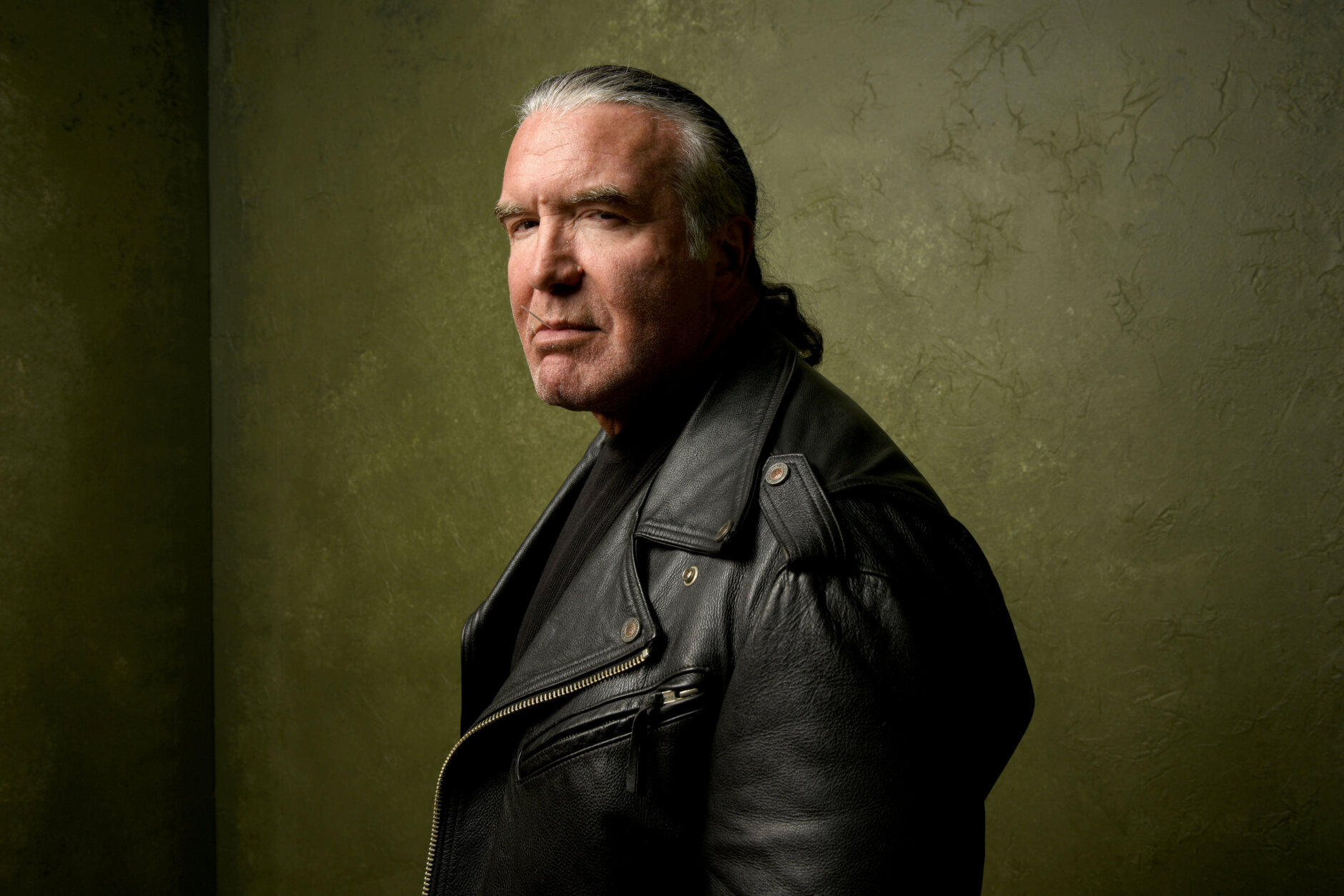
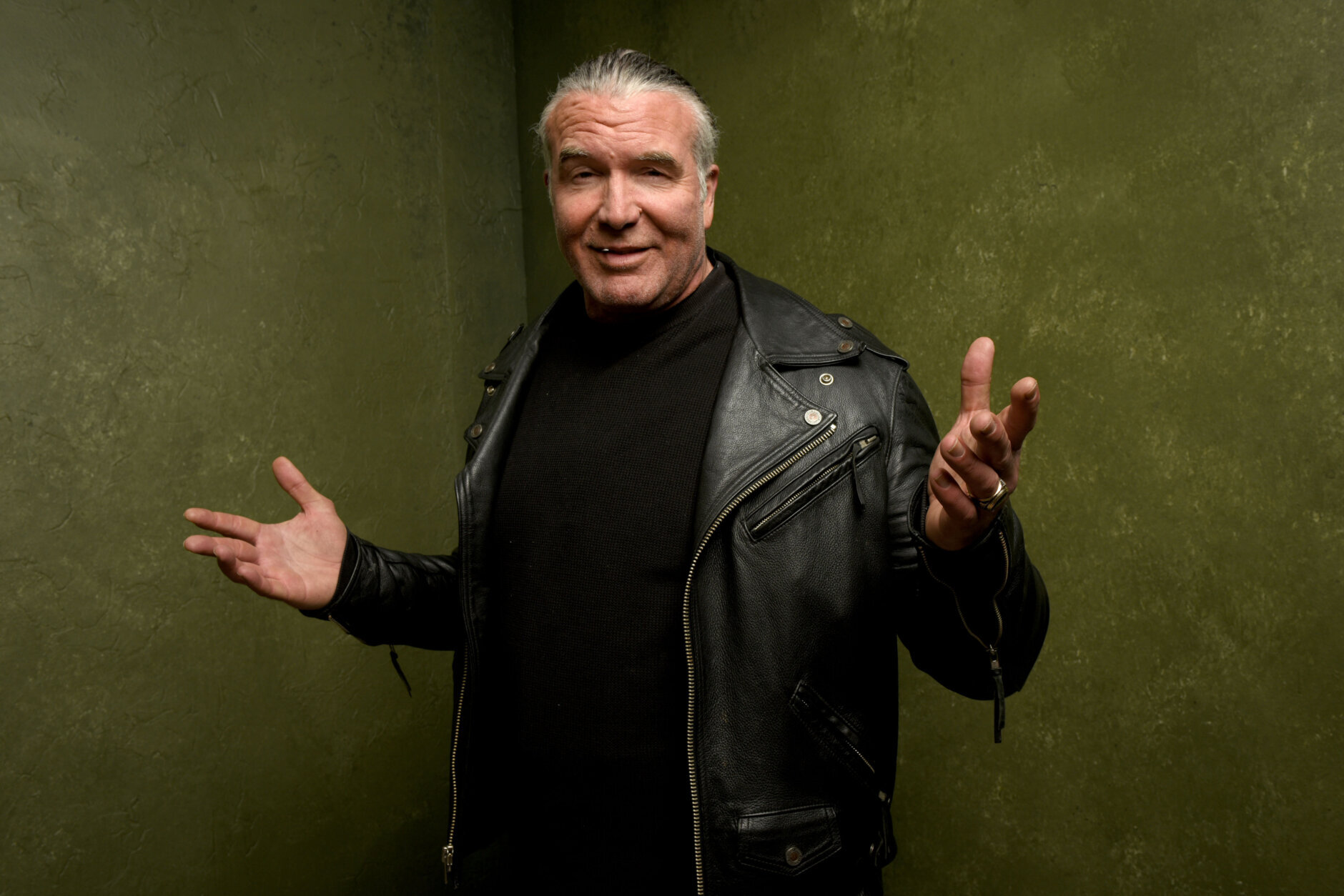
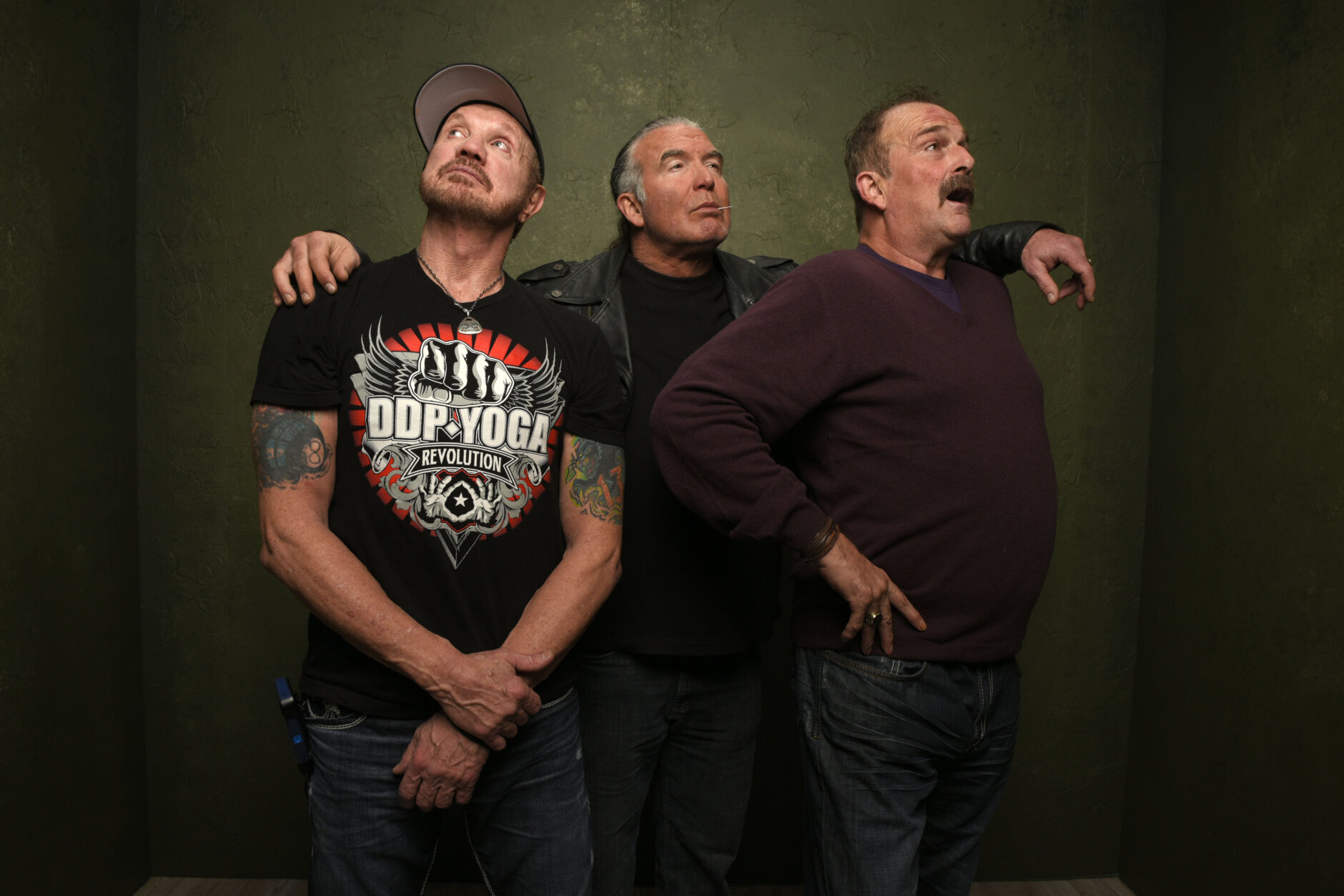
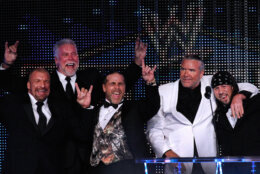
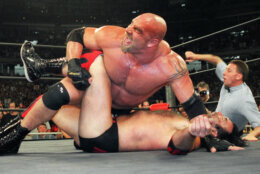
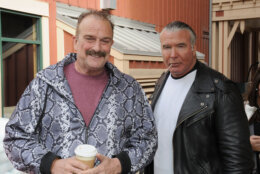
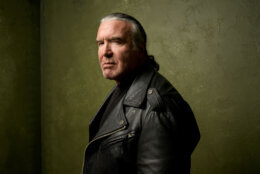
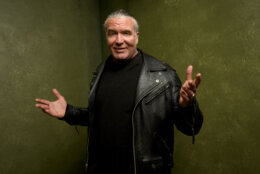
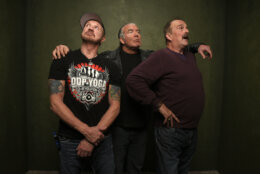
In professional wrestling, there are good guys and bad guys, babyfaces and heels.
Scott Hall made heels look so cool that you wanted to root for him in both the World Wrestling Federation (now the WWE) and World Championship Wrestling (WCW), while pulling the curtain back on the business for more reality-based sports entertainment.
On Monday, the WWE legend died after being taken off life support by his family following a series of heart attacks during complications from hip surgery. He was 63.
“My heart is broken,” longtime friend Kevin Nash posted on Instagram.
Born in St. Mary’s County, Maryland, in 1958, Hall entered professional wrestling in various territories, including the NWA, AWA and WCW, wrestling under the name The Diamond Stud, before becoming a household name as Razor Ramon in the WWF in 1992.
Throwing his toothpick at the camera, Ramon imitated Tony Montana’s Cuban-American villain from “Scarface” as the self-proclaimed “bad guy” with his catch phrase, “Hey, yo!”
The WWE family will forever remember Scott Hall as a gifted entertainer and 2-time WWE Hall of Famer, a loving father and a dear friend. pic.twitter.com/DC5VVnUsxd
— WWE (@WWE) March 15, 2022
Of course, there was more to Ramon than just his razor-sharp promos, Chico.
In the ring, he dominated his opponents by lifting them up over his head like a power bomb, spreading their helpless bodies across his back like a crucifix, then planting them hard into the mat for a devastating finishing maneuver known as The Razor’s Edge.
Some of his most memorable moments came putting other wrestlers “over” (losing matches as the script called for), including a stunning upset victory by the undersized 1-2-3 Kid (aka X-Pac) during the inaugural weeks of WWF “Monday Night Raw” in 1993.
Ramon won the Intercontinental Championship four times, famously beating Shawn Michaels at WrestleMania X at Madison Square Garden in 1994. The gimmick match has since become commonplace, but the two pioneered creative ladder spots, receiving the first 5-star match in a WWF ring by journalist Dave Meltzer of The Wrestling Observer.
In 1996, Hall and Kevin Nash (aka Diesel) broke character during the infamous “Curtain Call” at Madison Square Garden, hugging their supposed opponents (and backstage buddies in The Kliq) Shawn Michaels and Triple H during a cage match as they left WWF.
Wrestling purists were furious at the foursome for breaking “kayfabe,” the tradition of pretending wrestling was unscripted. Ironically, it gave rise to Stone Cold Steve Austin, who won the King of the Ring tournament in place of Triple H, who was punished by WWF owner Vince McMahon for the incident (Michaels was the champ, so he was untouchable).
As for the departing Hall and Nash, the wily defectors would immediately show up on rival WCW television, playing themselves as the reality-based duo “The Outsiders” invading Ted Turner’s company, taking audiences behind the scenes and into the TV control room.
It all built to “Bash at the Beach” (1996) when Hulk Hogan turned heel to join Hall and Nash, forming the iconic heel group, New World Order (nWo). Its logo was plastered on t-shirts in every school in the United States, rivaling the merchandise sales of “Austin 3:16.”
Together, the trio helped WCW beat the WWF in the television ratings for an impressive 83 weeks during the so-called Monday Night War between WWF’s “Raw” and WCW’s “Nitro.”
Along the way, Hall won the WCW United States Heavyweight Championship twice, first against Roddy Piper, then against Goldberg, Bret Hart and Sid Vicious in a Texas tornado ladder match. He was also a one-time WCW World Television Champion and a nine-time WCW World Tag Team Champion during his tenure as a top star of the company.
Still, he was best remembered for outside-the-ring antics, like dressing as a security guard and “tasing” Goldberg into submission, helping his buddy Nash cheat to win the WCW World Heavyweight Championship, ending Goldberg’s 173-match unbeaten streak.
Soon, ratings began to fade as nWo membership ballooned, while backstage squabbling ousted the group’s brainchild Eric Bischoff in favor of ex-WWE writer Vince Russo. As Hogan beat Nash with a “Finger Poke of Doom” (yes, really), fans increasingly changed the channel to watch The Rock, Stone Cold, Mick Foley and The Undertaker on WWF.
In 2001, McMahon officially won the Monday Night War and purchased WCW, allowing the nWo to return for WrestleMania 18. The Rock faced Hogan, while Stone Cold Steve Austin faced Hall with Nash in his corner. Hall lost to Austin’s signature Stone Cold Stunner.
The nWo made a surprise return at WrestleMania 31, coming out to help former WCW hero Sting against Triple H with the old warring factions of the nWo and DX at ringside.
His returns were always short-lived as Hall battled drug and alcohol addiction, fueled by PTSD from allegedly killing a man in self defense outside an Orlando nightclub in the 1980s. He was initially charged with second-degree murder, but the charges were dropped. The memories haunted Hall in a checkered pattern of personal-life controversy.
Fans were thrilled to see Hall overcome his proverbial demons with the help of former WCW colleague Diamond Dallas Page, who started DDP Yoga as a detox and healing program for fellow wrestlers (i.e. Jake Roberts) struggling with addiction and depression.
Hall’s rehab was complete when he was inducted into the WWE Hall of Fame in 2014, saying, “Hard work pays off, dreams come true, bad times don’t last, but bad guys do.”
Now, it’s time to say good night to the bad guy by throwing up our “Too Sweet” hand signals one last time, proving that Scott Hall remains “nWo 4 Life,” even in death.



